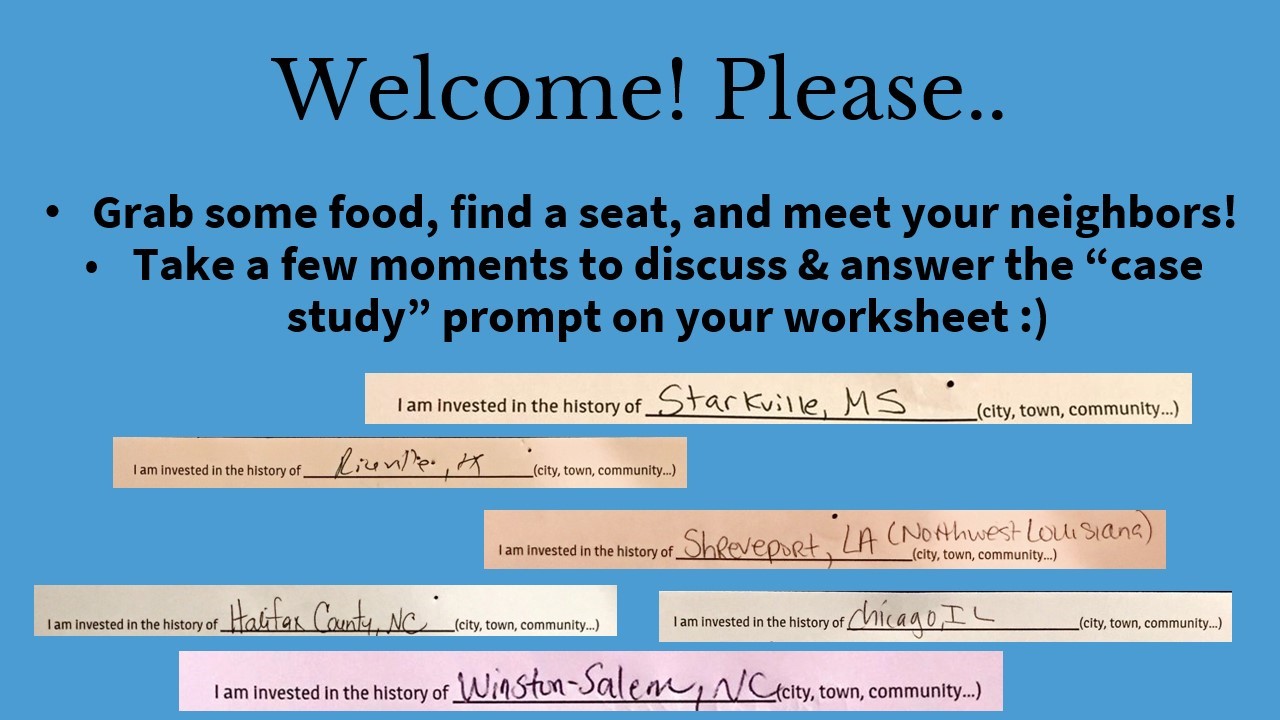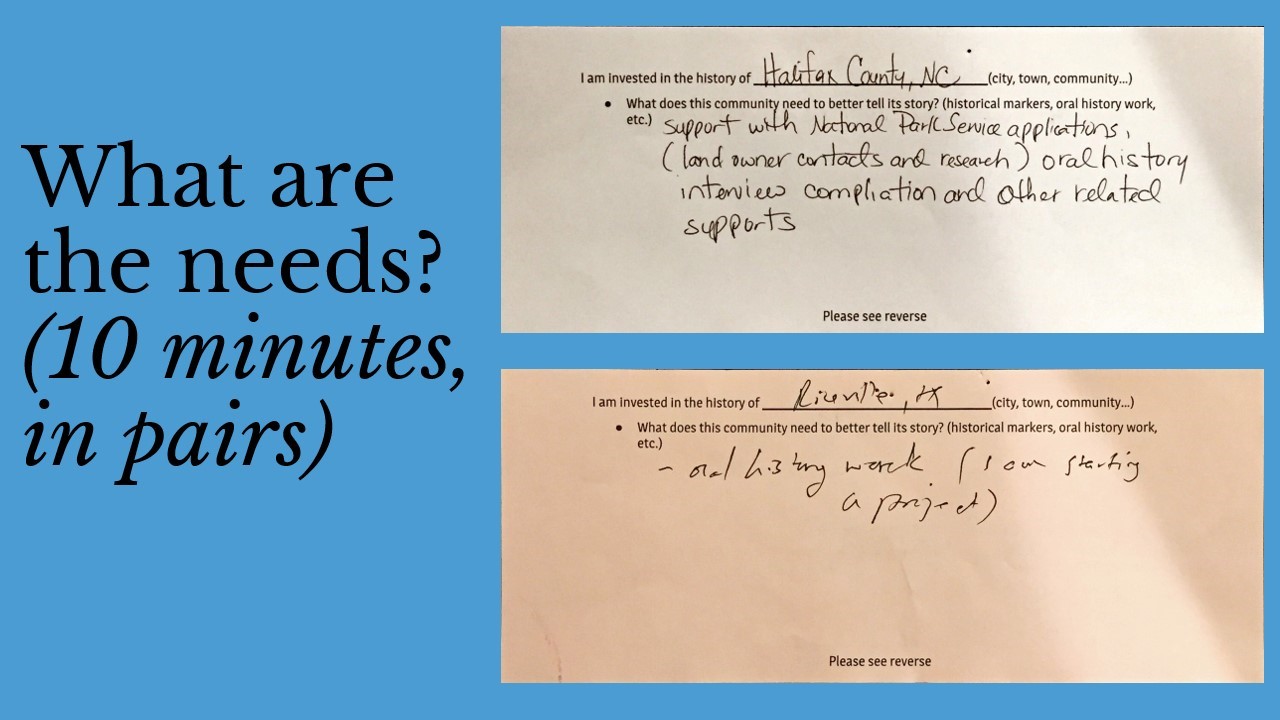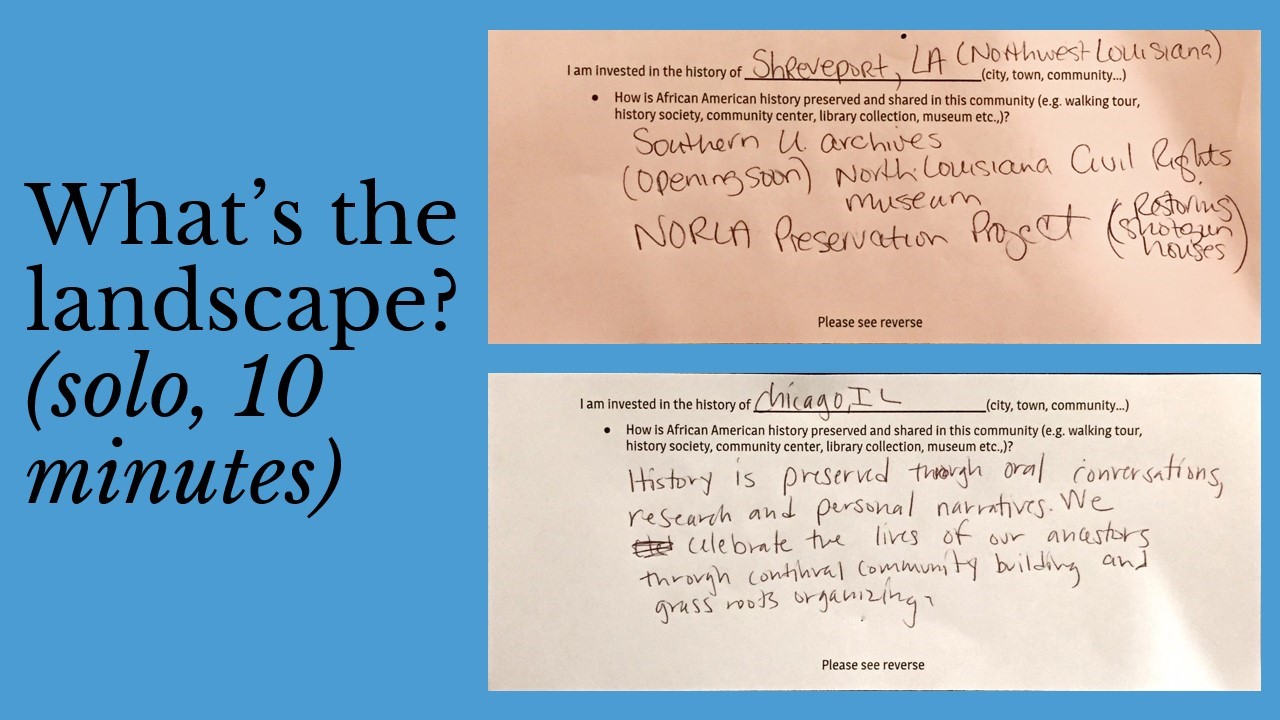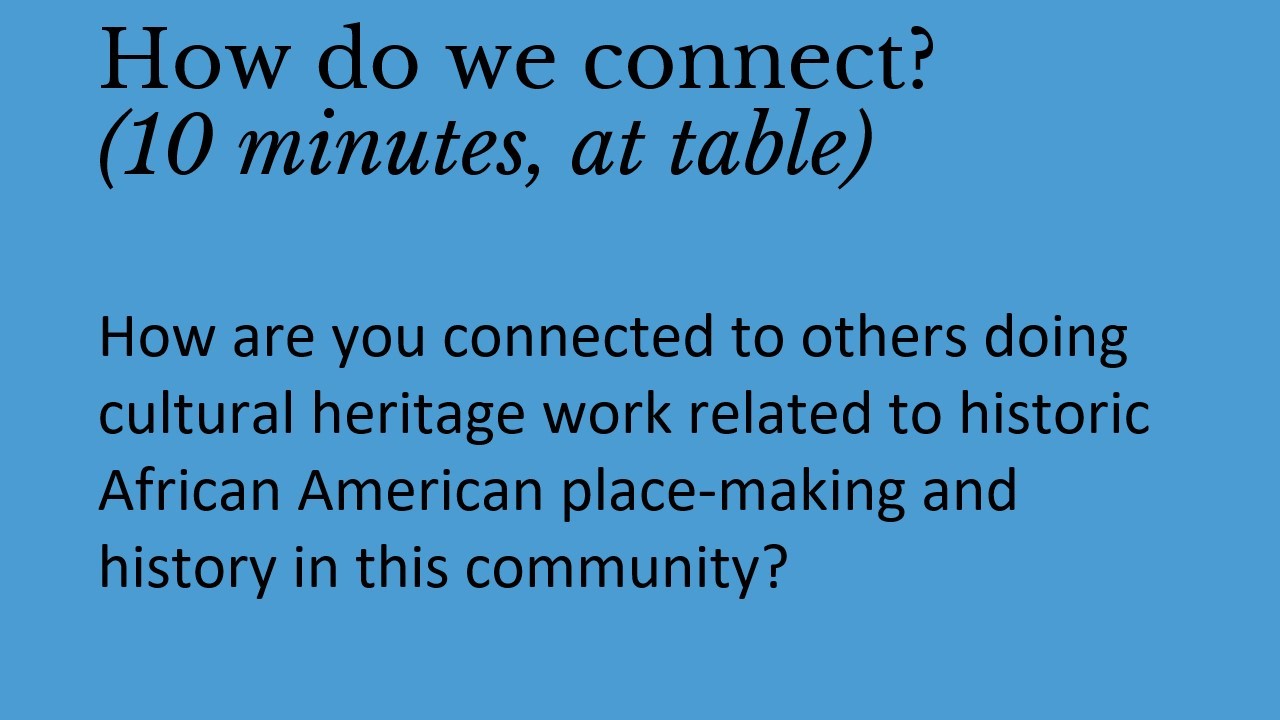![]()
A charrette is a focus group that brings together a wide variety of stakeholders in order to map solutions. Originally used in the Public Health field, our CDA Team and others have borrowed the term for community and cultural heritage work. Our charrettes bring individuals together to collaborate and workshop ideas for a common community vision. We focus on topics such as promoting and protecting cultural heritage, telling underrepresented histories, and discovering archival assets in communities. For our CDA team, we collaborate with a diverse group of stakeholders and individuals such as funders, librarians, community members, professors and academics, town officials, activists, artists, and archivists. These diverse participants ensure that the charrette isn’t an echo-chamber. Rather, members share a desire to invest in and protect a community but from different angles and perspectives.
A good charrette invites community expertise and specific knowledge of the historical and cultural dynamic; members within the community know the needs far better than we ever could. A common and often deadly shortcoming of any institutional project is to assume the institution knows what’s best for the community. Equally devastating is when an institution has a real desire to participate but struggles to have meaningful, sustained engagement. Both examples lead to institutions flailing in a sea of uncertainty and ineffectiveness. Charrettes are one way to counter these outcomes. It can be eye opening and humbling to have community members speak to historic problems and instances of broken trust face to face. For the charrette hosted by CDA in April at Black Communities: A Conference for Collaboration we asked individuals to share their knowledge of an African American community, its needs, and some hidden history highlights.

Our charrette was an informal lunchtime meeting. We provided a worksheet (with consent form to use the data collected included!) with a few questions, each probing a little more deeply into the needs and histories of communities. These questions asked participants to identify a place and describe how history is either being preserved or ignored. Our focus was (and remains) geared towards archival and cultural heritage so our questions related to storytelling and preservation of histories and materials. Our first question asked participants to identify a place and a little-known history from that area. Some of the towns and communities identified were Starkville, MS, Riceville, TX, Shreveport, LA, Halifax County, NC, Chicago, IL, and Winston-Salem, NC. Some participants told their family’s history while others focused on broader groups such as the Indigenous peoples and industries.

The second question was “What does this community need to better tell its story?” One participant from Halifax County, NC wrote: “support with National Park Service applications, (land owner contacts and research) oral history interview compilation and other related supports.” Another participant interested in Riceville, TX noted that their community need “oral history work” and a project to address that was underway.

The third question asked specifically “How is African American history preserved and shared in this community?” A participant from Shreveport, LA wrote “Southern U archives, (opening soon) North Louisiana Civil Rights Museum and NORLA Preservation Project (restoring shotgun houses).” Another participant from Chicago IL stated “History is preserved through oral conversations, research and personal narratives. We celebrate the lives of our ancestors through continual community building and grass roots organizing.” The emphasis on in-person communication is something that a charrette works hard to emulate and build upon.

Our final question asked to identify next steps. Preservation is important, but it must lead to something. We wanted to know how the ideas from this charrette could inform not only our work but work within the community. Charrettes can be all day affairs or an hour, like ours at Black Communities. Charrettes are connective, collaborative, exploratory and possibly explosive. All these attributes indicate that these types of in-person focus groups are necessary to identify need and ultimately movement. As one participant perfectly summed up, “information has to drive advocacy.”
We post every week on different topics but if there is something you’d like to see, let us know either in the comments or email Claire our Community Outreach Coordinator: clairela@live.unc.edu.
Follow us on Twitter @SoHistColl_1930 #AiaB #yourstory #ourhistory #communityarchives #EKAAMP #HBTSA #SHC #SAAACAM #memory #community #CDAT #Charrette #activism
